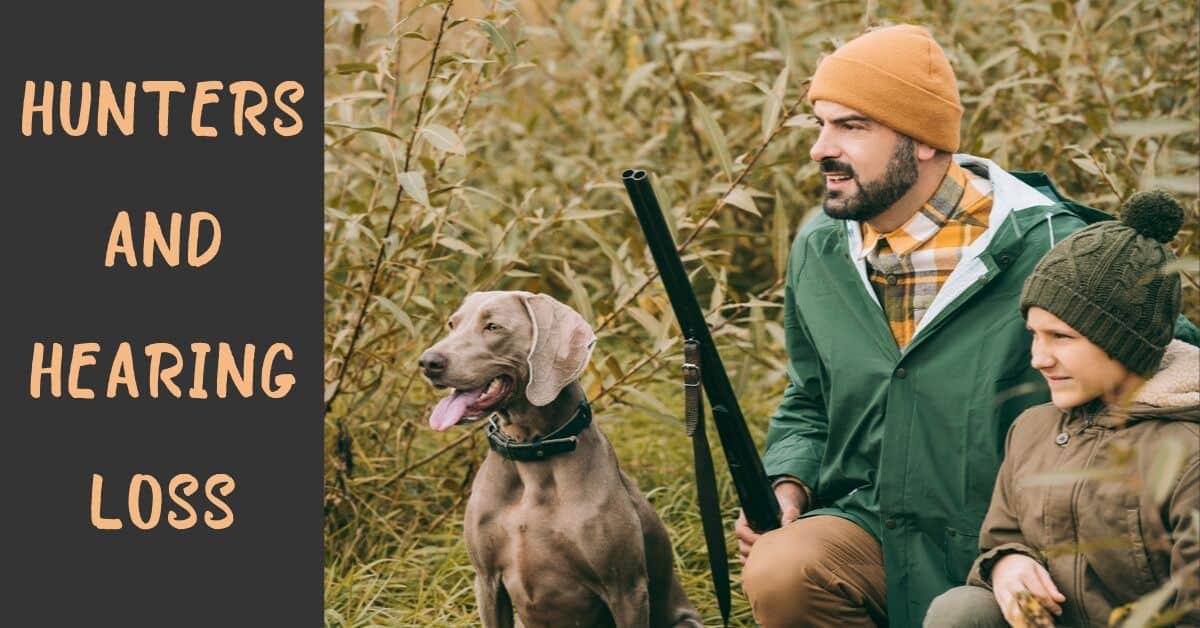For many of you, the approaching fall weather signals the start of hunting season. Hunting may be a favorite hobby or a way to stock the freezer for the winter, but if you’re an avid hunter, make sure you’re not jeopardizing your hearing this fall.
Hunting and Hearing Loss
Hunting is both one of the quietest and one of the loudest pass times. You often sit for long minutes or hours as quietly as possible, waiting for a duck or a deer to cross your path. However, after that long period of deep silence comes one of the loudest sounds imaginable: the sound of a gunshot at close range. A gunshot is extremely loud, and being exposed to even a single shot at close range can cause immediate and permanent damage to the delicate cells of your inner ear that are responsible for your hearing.
A recent study from the University of Wisconsin found that hearing loss among hunters is extremely common. The study surveyed men between the ages of 48 to 92, and discovered that those who hunted regularly were far more likely to have high-frequency hearing loss, and for every 5 years the man had been hunting, he had a 7% increased risk of hearing loss. Sadly, 95% of hunters in the study said they didn’t wear hearing protection!
Why Don’t Hunters Protect Their Hearing?
Many hunters know the risks to their hearing, but choose not to wear hearing protection. They say it’s because hearing protection, like earplugs or earmuffs, can muffle the sounds around them, and make hunting far more difficult. A lot of hunting is waiting and listening, and if you can’t hear the rustling of the grass, or the flapping of wings, you’ll miss your shot. That’s why many hunters risk damaging their hearing, and don’t wear protection.
Hearing Protection for Hunters
If you’re not wearing hearing protection while hunting, you could lose the ability to hear all the wonderful sounds in nature, like the birds chirping overhead, the gurgling from a nearby stream, or even the sounds you rely on while hunting, such as the soft sound of a twig snapping, or an animal moving through the underbrush. There are two main types of hearing protection to choose from, and which you use is entirely up to you.
Passive Noise Protection
The most common kind of hearing protection is known as passive noise protection. This includes protection like earplugs and earmuffs that muffle all the noise around you, and reduce the decibel levels of everything you can hear. For very loud noises such as gunshots, its recommended to wear both earplugs and earmuffs, so that the excessively loud sound of the gun shot won’t damage your inner ear. However, passive noise protection can give you that muffled effect, and while this is fine for the shooting range, it might take away from your success when out hunting.
Active Hearing Protection
Another kind of hearing protection is active hearing protection, and it’s a favorite among hunters. These digital devices take hearing protection to a whole new level, and you’ll enjoy the best of both worlds. With active hearing protection, you’ll be able to hear all the subtle sounds that make you a successful hunter, and make an afternoon in the woods a lot more enjoyable. You’ll also be completely protected from the noise of the gunshot! Active hearing protection uses destructive interference, which creates an inverse sound wave to the loud crack of the gunshot, countering the sound wave before it can cause any harm to your hearing. The program senses the environment around you, and allow all safe sounds to reach your ears without being muffled, while instantly blocking any harmful sounds from reaching your ears.
My Hearing Centers
Hearing loss among hunters in completely preventable, so if you’re heading out hunting this season, visit us at My Hearing Centers to find out more about hearing protection, and what you can do to protect your hearing. We know all about noise induced hearing loss, and we’ll help you find the hearing protection that matches your needs. Once you’ve lost your hearing you can’t get it back, so this fall safeguard your hearing with either passive or active hearing protection.


